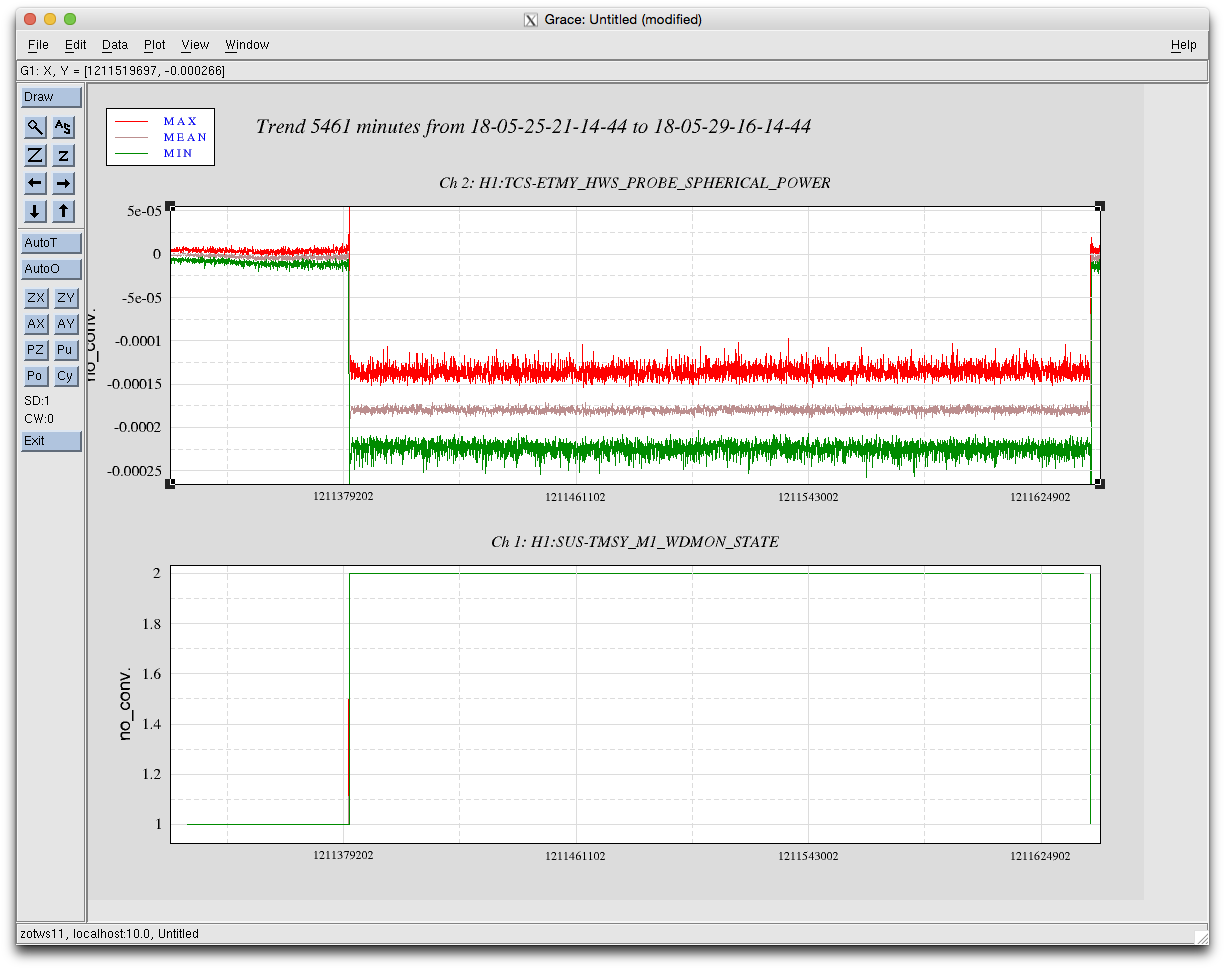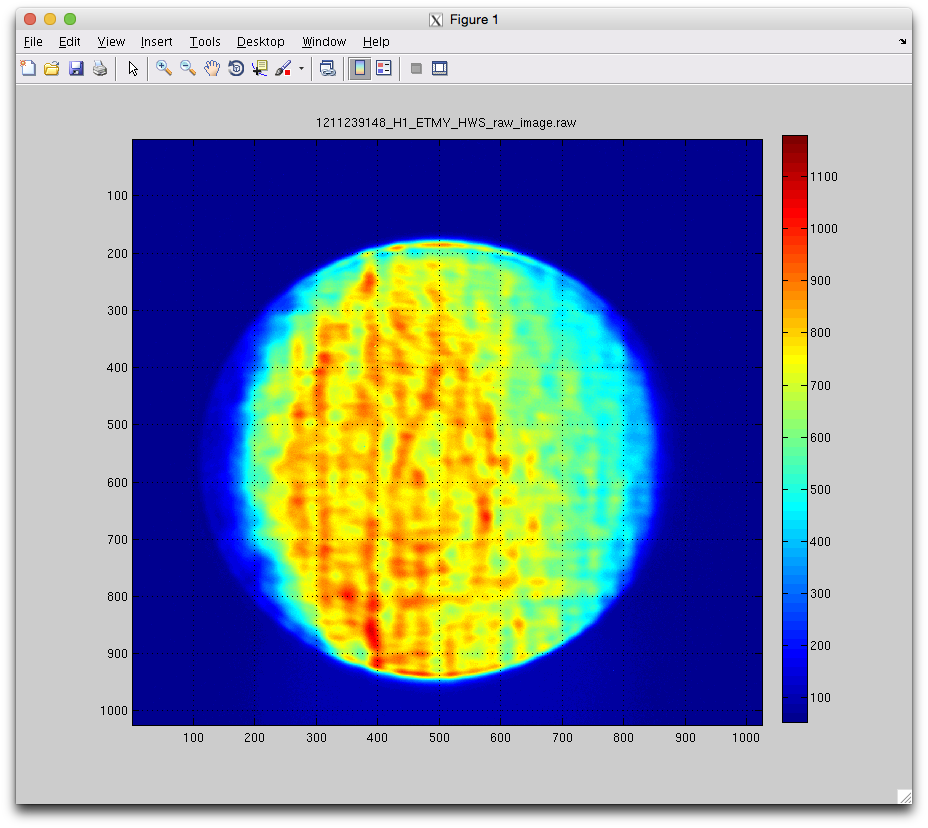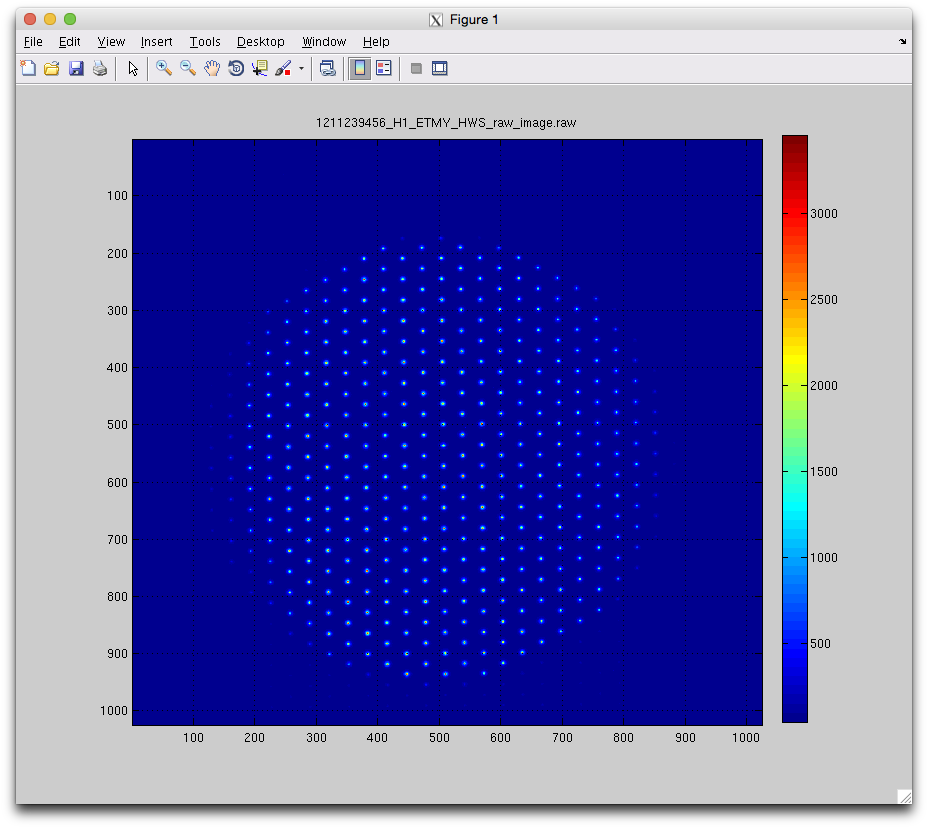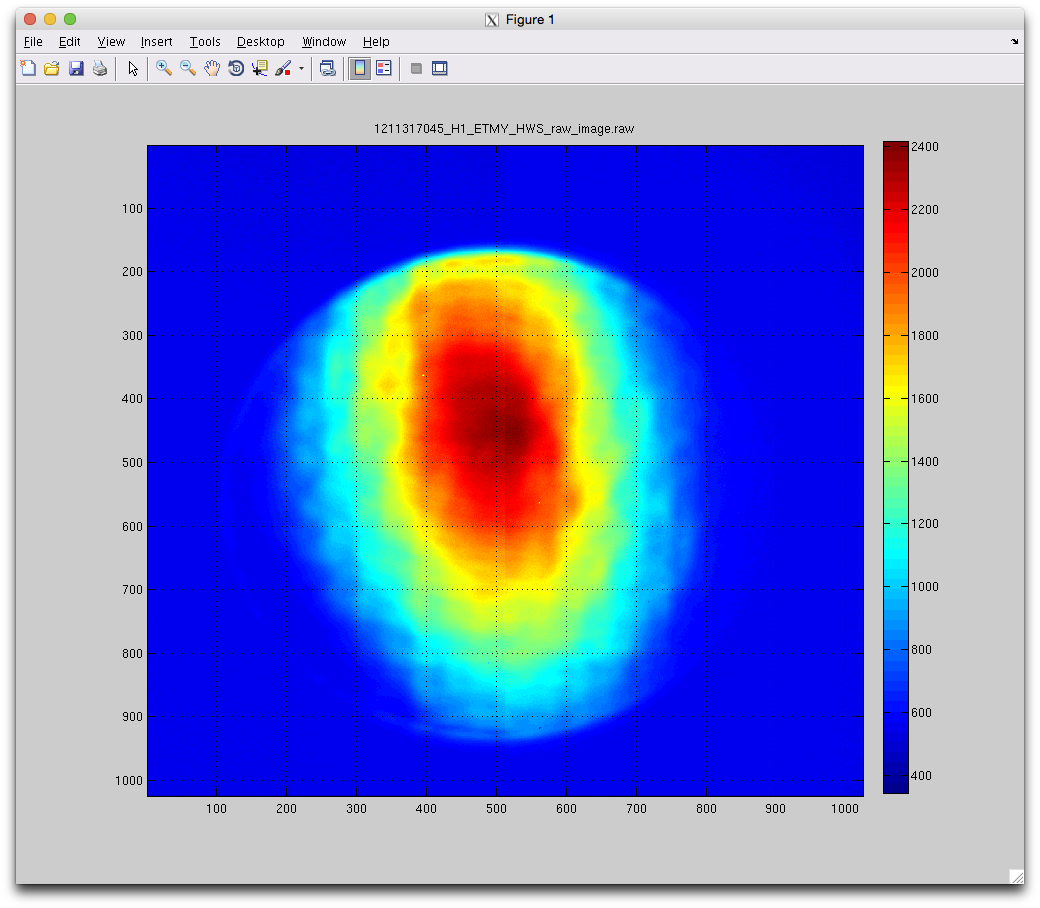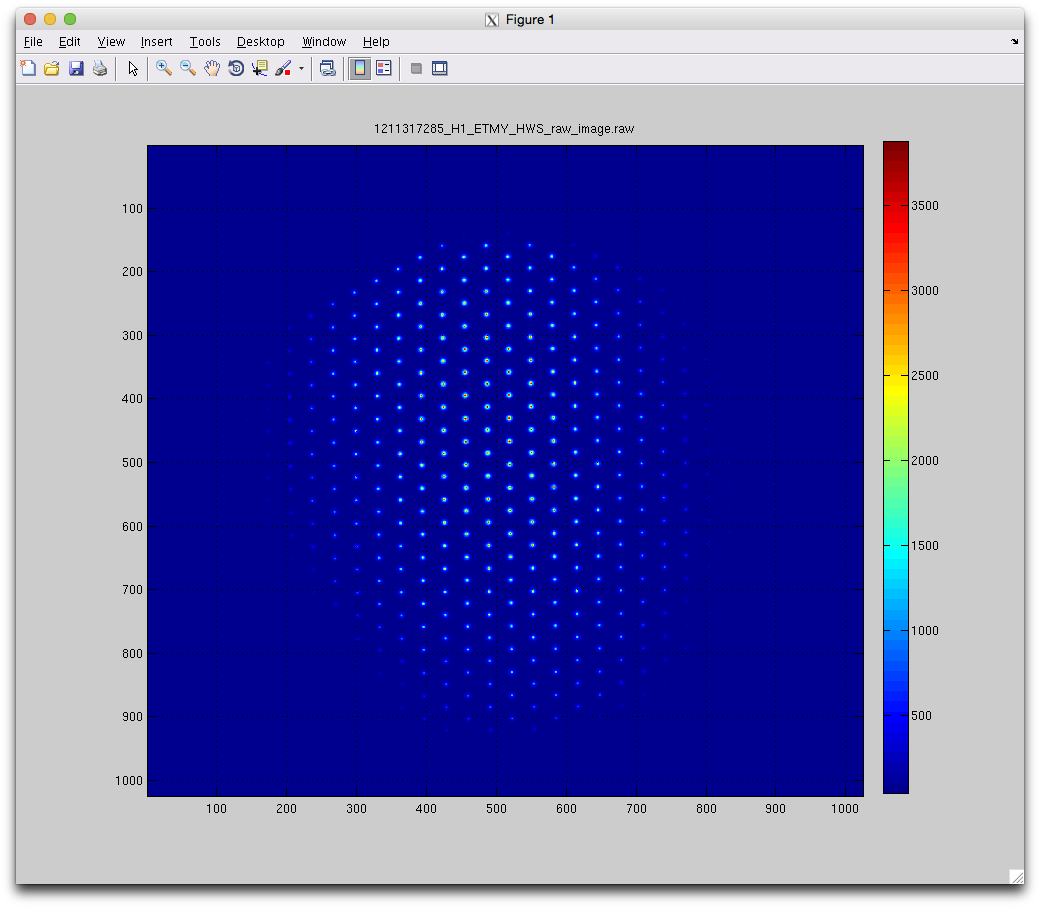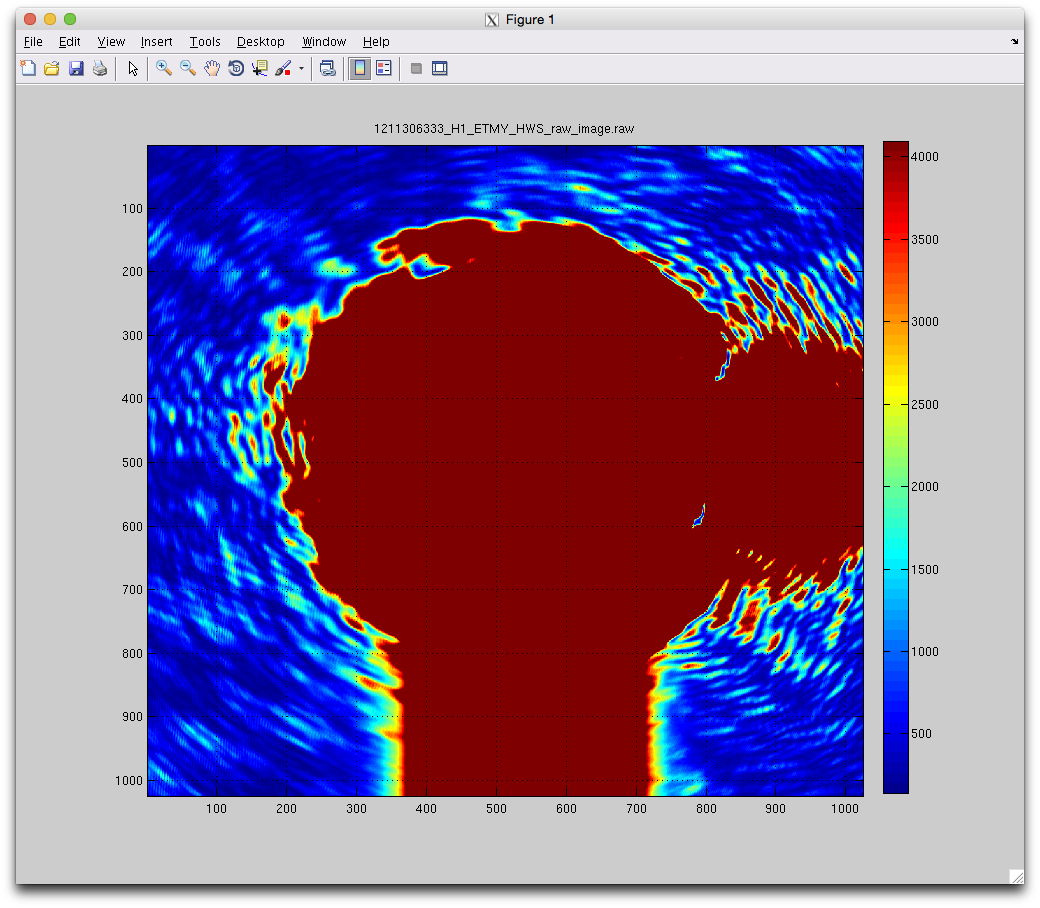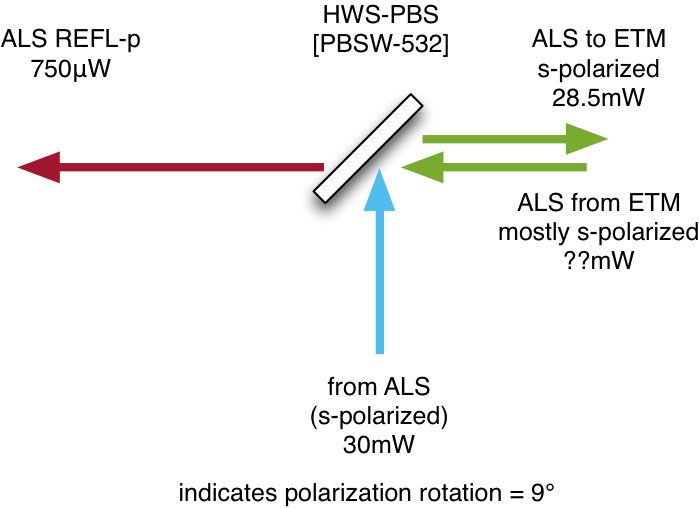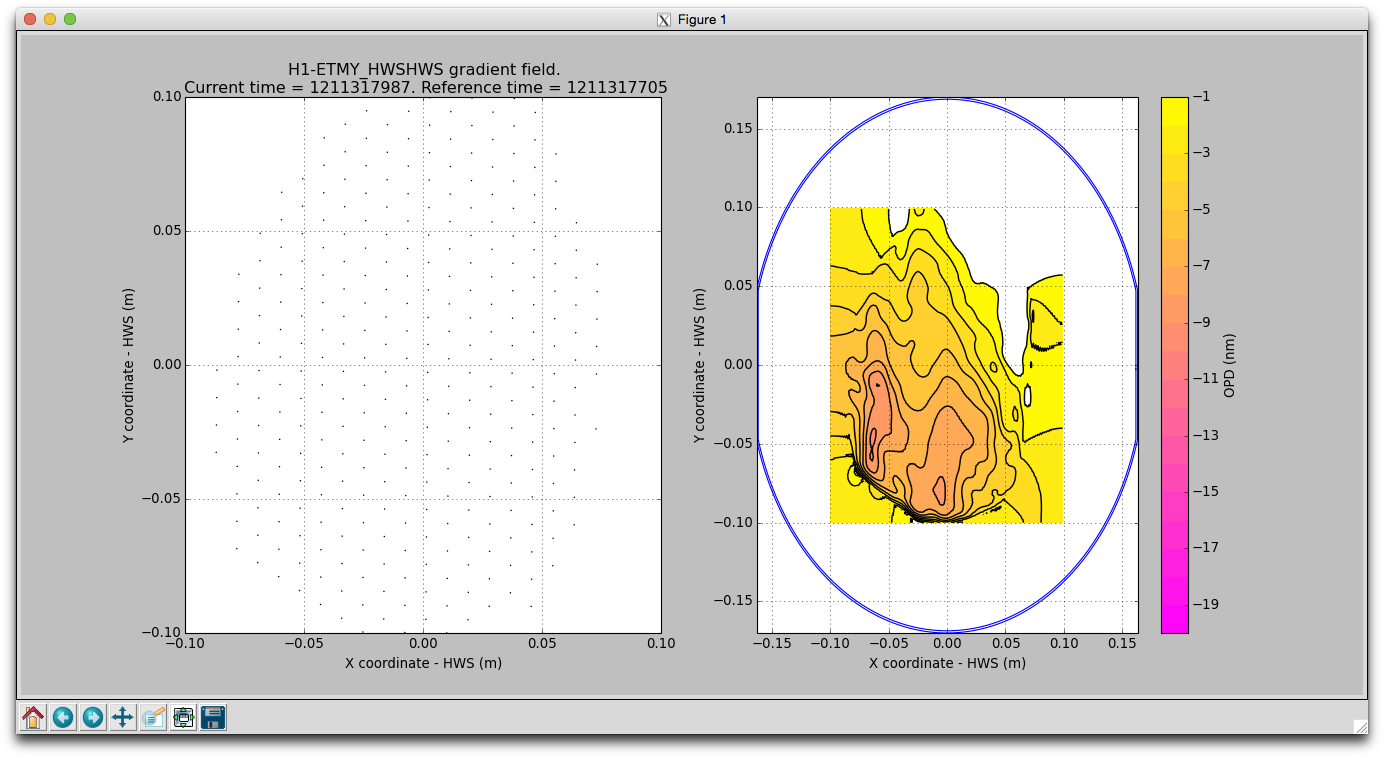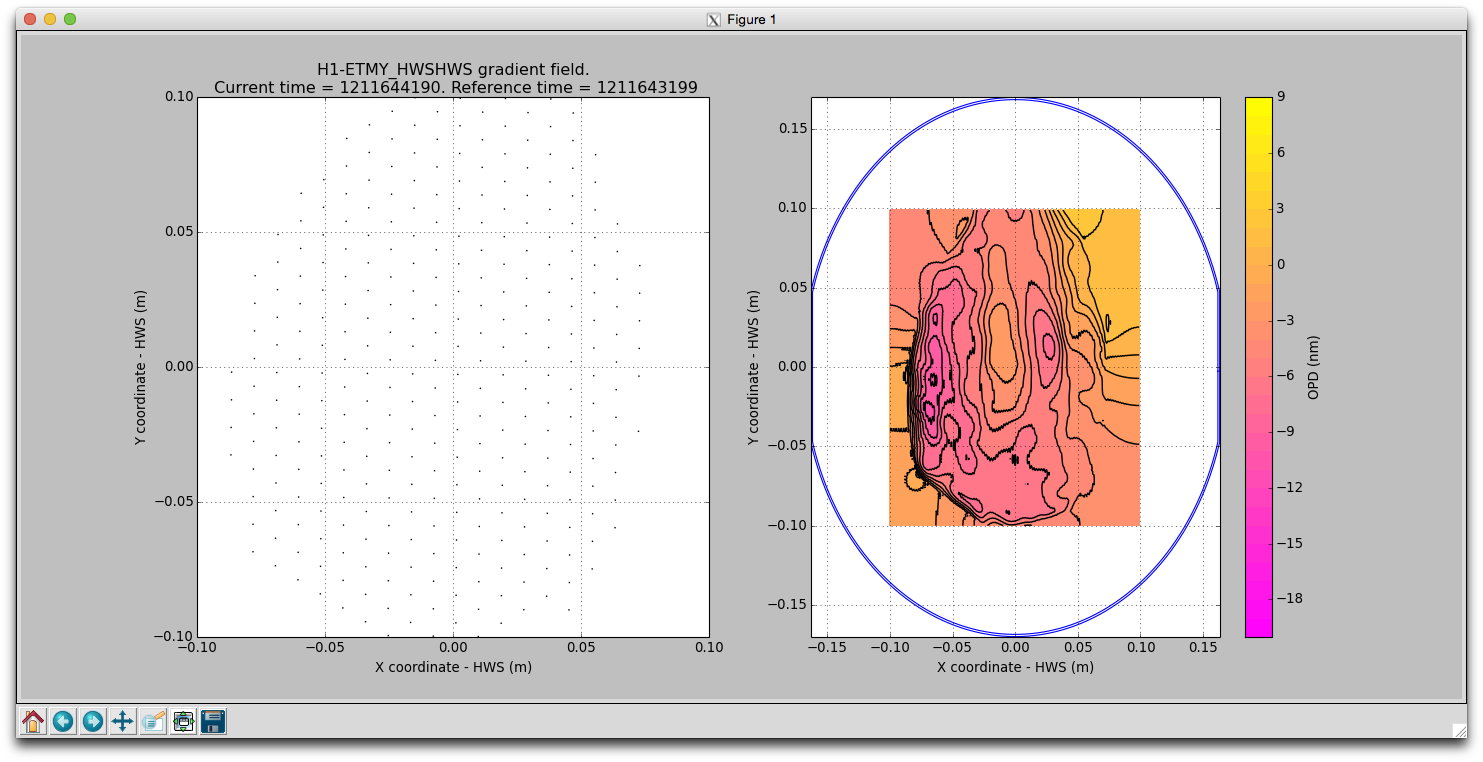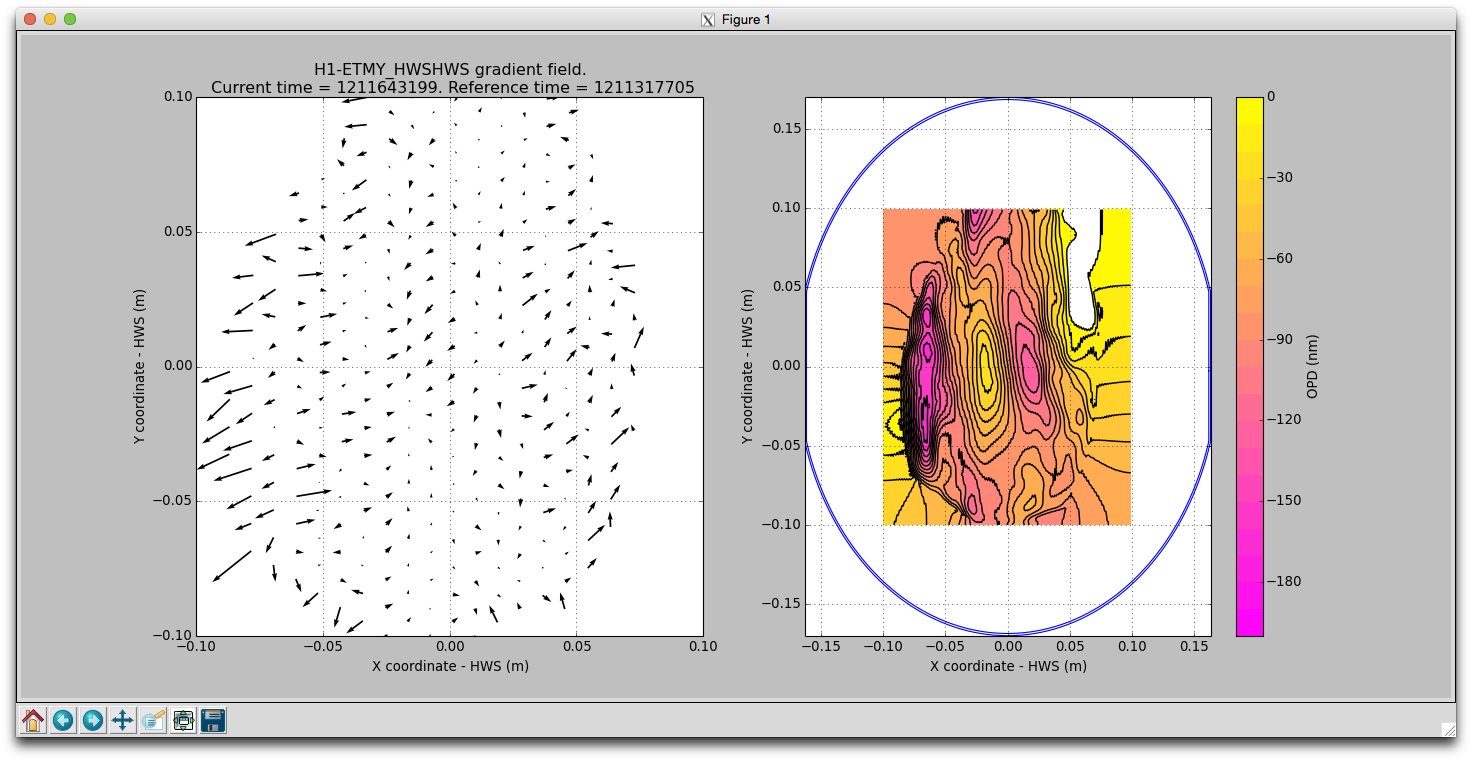J. Kissel I've taken the standard health checks on H1 SUS ETMX after most of the (re)install work has been completed (completely replacing the test mass, replacing the ERM with an AERM -- and subsequently changing the PenRe, adding AMDs, BRDs, etc. etc.). I'm happy with all the results, and think we can begin the close-out process. The only thing of interest: this is only the second instantiation of an AERM suspension (LLO is still in the process of their ETM upgrades). Most R0 modes show the expected shift in response from an ERM-type to AERM-type -- except for the second lowest pitch mode (in current AERM ETMX at 1.1 Hz, in former ERM ETMX at 0.8 Hz, and in current AERM ETMY at 0.7 Hz), which appears different from ETMY's AERM, and shows up drastically differently in the R to R transfer function. It's interesting, but I'm not alarmed by this: we know from ERM and ThinCP experience that depending on the details of the reaction chain cabling, these "middle" pitch modes can be wildly different between reaction chain type instantiations. There's also nothing special about the damping loops for the reaction chain -- in fact there's a resonant gain at 1.3 Hz; good for this instantiation -- so I don't expect any change in performance. I've confirmed that the damping loops close and are stable. I'll get a loops-closed TF to confirm this once doors are on and we have some more time. (A note to my recent controls class -- this is exactly why we don't do plant inversion!) Otherwise, the reaction chain transfer functions look as expected. The main chain looks virtually identical to it's previous incarnation -- a testament to (a) the amazing assembly work performed by Betsy and Travis, and (b) the incredible reproducibility of the QUAD's mechanical design. OSEM ASDs confirm that Fil and Besty's ground loop checking (LHO aLOG 42007) were indeed successful: although we see the typical mechanical resonances of a Locked ISI between 100-1000 Hz in the M0 and R0 BOSEMs, the overall noise floor is about at the expected BOSEM noise floor, and while > 1 kHz "humps" exist, there are no humps that are particularly worse than what we've see before. There're also no obvious combs. I've said it before, but I'll say it again -- excellent work Team SUS! Data Templates: Amplitude Spectral Densities: /ligo/svncommon/SusSVN/sus/trunk/QUAD/H1/ETMX/Common/Data/ 2018-05-30_1606_H1SUSETMX_OSEM_ASDs.xml Transfer Functions: /ligo/svncommon/SusSVN/sus/trunk/QUAD/H1/ETMX/SAGM0/Data/ 2018-05-30_1517_H1SUSETMX_M0_Mono_WhiteNoise_L_0p01to50Hz.xml 2018-05-30_1517_H1SUSETMX_M0_Mono_WhiteNoise_T_0p01to50Hz.xml 2018-05-30_1517_H1SUSETMX_M0_Mono_WhiteNoise_V_0p01to50Hz.xml 2018-05-30_1517_H1SUSETMX_M0_Mono_WhiteNoise_R_0p01to50Hz.xml 2018-05-30_1517_H1SUSETMX_M0_Mono_WhiteNoise_P_0p01to50Hz.xml 2018-05-30_1517_H1SUSETMX_M0_Mono_WhiteNoise_Y_0p01to50Hz.xml /ligo/svncommon/SusSVN/sus/trunk/QUAD/H1/ETMX/SAGR0/Data/ 2018-05-30_1618_H1SUSETMX_R0_WhiteNoise_L_0p01to50Hz.xml 2018-05-30_1618_H1SUSETMX_R0_WhiteNoise_T_0p01to50Hz.xml 2018-05-30_1618_H1SUSETMX_R0_WhiteNoise_V_0p01to50Hz.xml 2018-05-30_1618_H1SUSETMX_R0_WhiteNoise_R_0p01to50Hz.xml 2018-05-30_1618_H1SUSETMX_R0_WhiteNoise_P_0p01to50Hz.xml 2018-05-30_1618_H1SUSETMX_R0_WhiteNoise_Y_0p01to50Hz.xml
Recall that the AERMX had it's ESD connector reterminated which shortened the length of loose cable running between the AERMX and PenRe masses. We seated these cables as loosely as we could, but they are still stiffer than before - hence the difference between the ETMX and ETMY R0 chain measurements.
Attached are pix of the ~ 1cm shorter cables than "normal" cables in this location on AERMX. (5 thin kapton wires are the "shortened cable".)


















